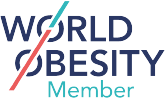Childhood and adolescent obesity
Childhood obesity is a multifactorial condition that has become a serious public health problem worldwide. In 2020, the World Obesity Federation estimated that 158 million children older than five years were overweight. The World Obesity Atlas published by WOF shows that more than 750 million children aged 5 to 19 years will have been overweight by 2035, which means two out of every five children worldwide, and most of them will be living in middle-income countries. In Brazil, the Food and Nutrition Surveillance System indicates that nearly 31% of the children and adolescents seen in SUS primary healthcare units in 2022 were overweight.
Obesity is a risk factor for diabetes and heart and respiratory diseases during childhood and in adulthood, affecting the quality of life and proper development of children and adolescents and placing a burden on the healthcare system. Taking action to reduce the growing number of obesity cases has posed a great challenge. As a result of the decrease in the price of ultraprocessed foods compared to fresh foods and of the aggressive marketing campaigns targeted at children and adolescents, the consumption of ultraprocessed foods by this public has been on the rise in recent years.
Worse eating habits among children and adolescents and higher food and nutritional insecurity have brought about the phenomenon known as double burden of malnutrition, which consists of the coexistence of undernutrition, nutritional deficiencies, overweight, and obesity. Therefore, a child with obesity can simultaneously have malnutrition.
Desiderata undertakes integrated actions to raise awareness among public administrators and to promote the adoption of public policies for the prevention and treatment of childhood obesity, including knowledge production and dissemination, data monitoring, mobilization efforts, and advocacy actions in the legislative and executive branches.







